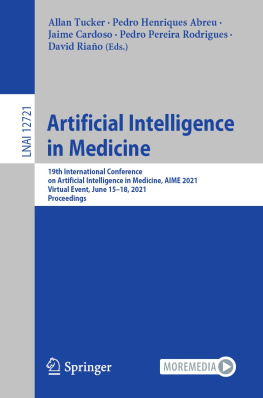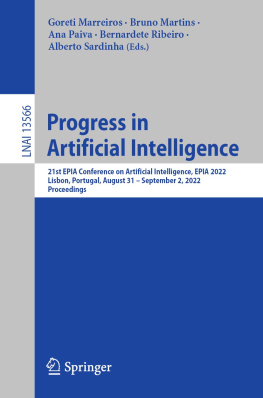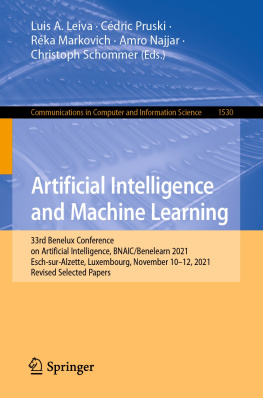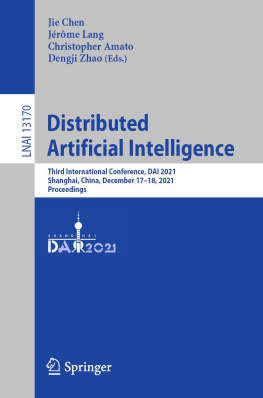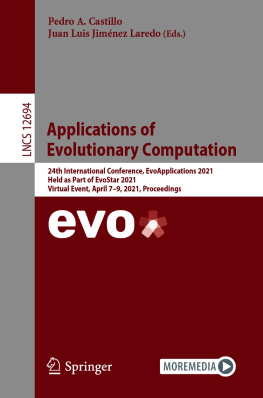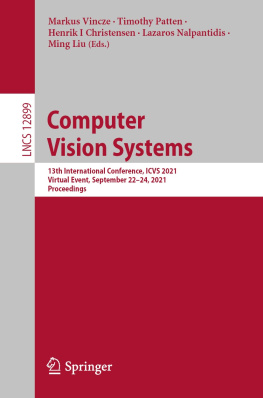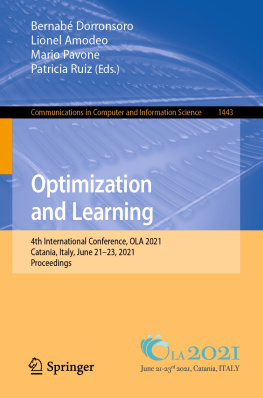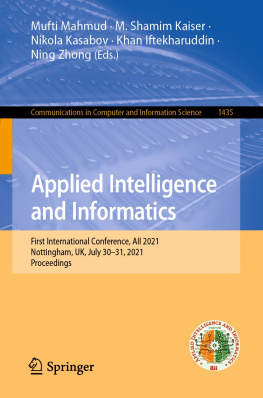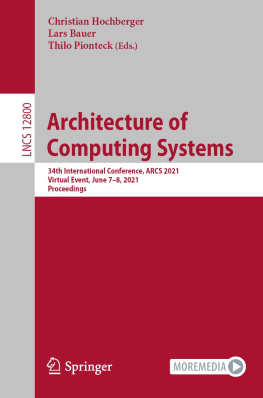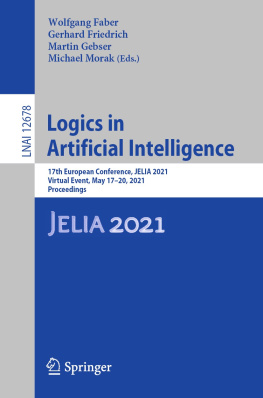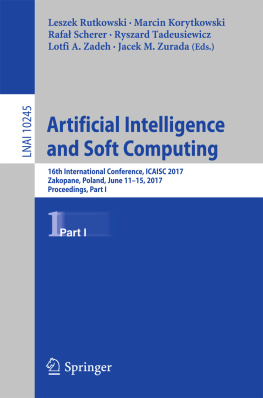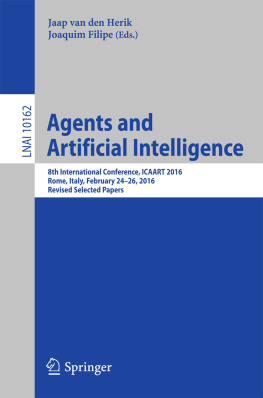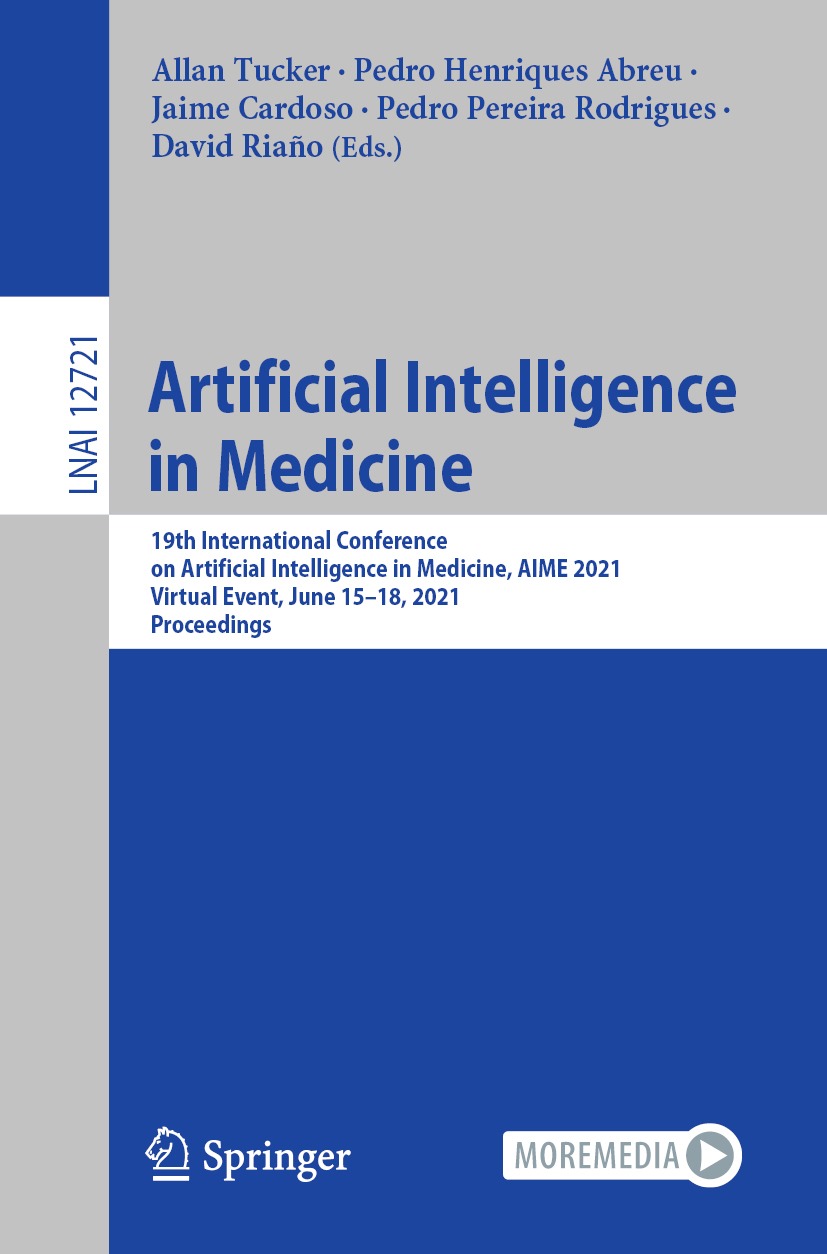Editors
Allan Tucker
Brunel University London, Uxbridge, UK
Pedro Henriques Abreu
University of Coimbra, Coimbra, Portugal
Jaime Cardoso
University of Porto, Porto, Portugal
Pedro Pereira Rodrigues
University of Porto, Porto, Portugal
David Riao
Universitat Rovira i Virgili, Tarragona, Spain
ISSN 0302-9743 e-ISSN 1611-3349
Lecture Notes in Computer Science Lecture Notes in Artificial Intelligence
ISBN 978-3-030-77210-9 e-ISBN 978-3-030-77211-6
https://doi.org/10.1007/978-3-030-77211-6
Springer Nature Switzerland AG 2021
This work is subject to copyright. All rights are reserved by the Publisher, whether the whole or part of the material is concerned, specifically the rights of translation, reprinting, reuse of illustrations, recitation, broadcasting, reproduction on microfilms or in any other physical way, and transmission or information storage and retrieval, electronic adaptation, computer software, or by similar or dissimilar methodology now known or hereafter developed.
The use of general descriptive names, registered names, trademarks, service marks, etc. in this publication does not imply, even in the absence of a specific statement, that such names are exempt from the relevant protective laws and regulations and therefore free for general use.
The publisher, the authors and the editors are safe to assume that the advice and information in this book are believed to be true and accurate at the date of publication. Neither the publisher nor the authors or the editors give a warranty, expressed or implied, with respect to the material contained herein or for any errors or omissions that may have been made. The publisher remains neutral with regard to jurisdictional claims in published maps and institutional affiliations.
This Springer imprint is published by the registered company Springer Nature Switzerland AG
The registered company address is: Gewerbestrasse 11, 6330 Cham, Switzerland
Preface
The European Society for Artificial Intelligence in Medicine (AIME) was established in 1986 following a very successful workshop held in Pavia, Italy, the year before. The principal aims of AIME are to foster fundamental and applied research in the application of artificial intelligence (AI) techniques to medical care and medical research, and to provide a forum at biennial conferences for discussing any progress made. The main activity of the society thus far has been the organization of a series of biennial conferences, held in Marseilles, France (1987), London, UK (1989), Maastricht, Netherlands (1991), Munich, Germany (1993), Pavia, Italy (1995), Grenoble, France (1997), Aalborg, Denmark (1999), Cascais, Portugal (2001), Protaras, Cyprus (2003), Aberdeen, UK (2005), Amsterdam, Netherlands (2007), Verona, Italy (2009), Bled, Slovenia (2011), Murcia, Spain (2013), Pavia, Italy (2015), Vienna, Austria (2017), Poznan, Poland (2019), and Minneapolis, USA (2020) - the latter hosted virtually due to the COVID-19 pandemic.
AIME 2021 was to be hosted in Portugal but, due to the ongoing pandemic, it was held virtually. This volume contains the proceedings of AIME 2021, the International Conference on Artificial Intelligence in Medicine, hosted virtually by the University of Coimbra, Portugal, during June 1518, 2021.
The AIME 2021 goals were to present and consolidate the international state of the art of AI in biomedical research from the perspectives of theory, methodology, systems, and applications. The conference included two invited keynotes, full and short papers, tutorials, workshops, and a doctoral consortium. In the conference announcement, authors were invited to submit original contributions regarding the development of theory, methods, systems, and applications for solving problems in the biomedical field, including AI approaches in biomedical informatics, molecular medicine, and health-care organizational aspects. Authors of papers addressing theory were requested to describe the properties of novel AI models potentially useful for solving biomedical problems. Authors of papers addressing theory and methods were asked to describe the development or the extension of AI methods, to address the assumptions and limitations of the proposed techniques, and to discuss their novelty with respect to the state of the art. Authors of papers addressing systems and applications were asked to describe the development, implementation, or evaluation of new AI-inspired tools and systems in the biomedical field. They were asked to link their work to underlying theory, and either analyze the potential benefits to solve biomedical problems or present empirical evidence of benefits in clinical practice. All authors were asked to highlight the value their work, created for the patient, provider, or institution, through its clinical relevance.
AIME 2021 received 138 submissions across all categories. Submissions came from 34 countries, including submissions from Europe, North and South America, Asia, Australia, and Africa. All papers were carefully peer-reviewed by experts from the Program Committee, with the support of additional reviewers, and by members of the Senior Program Committee (a new layer to the review process introduced in AIME 2020). Each submission was reviewed by at least three reviewers. The reviewers judged the overall quality of the submitted papers together with their relevance to the AIME conference, originality, impact, technical correctness, methodology, scholarship, and quality of presentation. In addition, the reviewers provided detailed written comments on each paper, and stated their confidence in the subject area. A Senior Program Committee member was assigned to each paper and they wrote a meta-review and provided a recommendation to the Organizing Committee.
A small committee consisting of the conference co-chairs, Allan Tucker, Pedro Henrique Abreu, and Jaime Cardoso, made the final decisions regarding the AIME 2021 scientific program.
This process began with virtual meetings starting in March 2021. As a result, 28 long papers (an acceptance rate of 23%) and 30 short papers were accepted. Each long paper was presented in a 20-minute oral presentation during the conference. Each regular short paper was presented in a 5-minute presentation and by a poster. The papers were organized according to their topics in the following main themes: (1) Deep Learning; (2) Natural Language Processing; (3) Predictive Modeling; (4) Image Analysis; (5) Unsupervised Learning; (6) Temporal Data Analysis; (7) Planning; and (8) Knowledge Representation.

